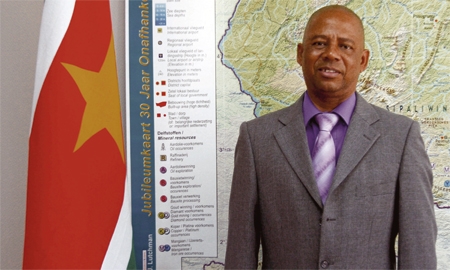Since entering office in 2010, President Desire Delano Bouterse and his administration have been focused on bolstering its regional relationships. However, according to the Minister of Foreign Affairs,
Winston Lackin, they had been planning a national strategy long before the elections. “We have thought for years what we wanted to do,” he says. “There are certain principles that we have: one of them is that Suriname should be developed in the first place on the basis of its natural resources, with its own population, and with the help from friendly countries in the region, in the wider region, within our bilateral relations, and with our international relations.”
Mr. Lackin feels the country’s agriculture, tourism and transportation sectors can help cultivate a higher international profile for Suriname. He says, “We are co-operating closely with Guyana to see how we can join our agricultural resources. We have to be the food basket, not only for Caricom (the Caribbean Community and Common Market), but also for the wider Caribbean region.”
Part of the government’s foreign policy is help to create markets and to promote products made in Suriname. Not only for material products, but also to show Suriname’s unique cultural richness. “Our culture should be an industry,” says Mr. Lackin.
In addition to working on stronger ties within Caricom, in 2011 Suriname joined the Forum for East Asia-Latin America Cooperation (FEALAC). It also acceded to the Union de Naciones Suramericanas (Unasur) – an inter-governmental union integrating two well-established customs associations: the Mercado Comun del Sur (Mercosur) and the Comunidad Andina (CAN). It is part of a continuing process of integration among South American countries, largely modeled on the EU.
Suriname is also participating in the Initiative for the Integration of the Regional Infrastructure of South America (IIRSA), which was created in 2000 to connect the continent’s economies through new transportation, energy, and telecoms projects. Through this union, Suriname plays an important role with its East-West Link routes connecting Guyana, French Guiana and Brazil.
“We want to capitalize on our geographical position; we want to play a role in international seaborne transportation,” says Mr. Lackin.

0 COMMENTS